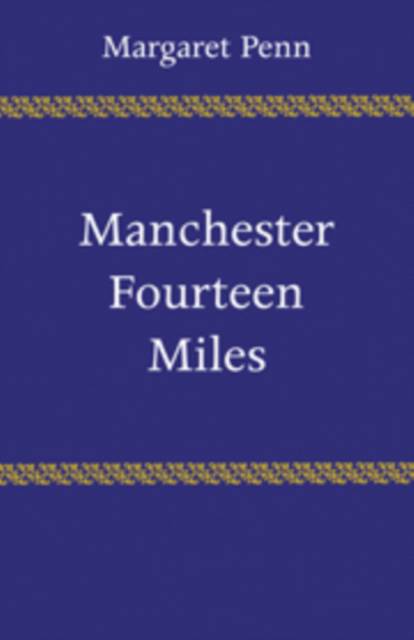
Door een staking bij bpost kan je online bestelling op dit moment iets langer onderweg zijn dan voorzien. Dringend iets nodig? Onze winkels ontvangen jou met open armen!
- Afhalen na 1 uur in een winkel met voorraad
- Gratis thuislevering in België vanaf € 30
- Ruim aanbod met 7 miljoen producten
Door een staking bij bpost kan je online bestelling op dit moment iets langer onderweg zijn dan voorzien. Dringend iets nodig? Onze winkels ontvangen jou met open armen!
- Afhalen na 1 uur in een winkel met voorraad
- Gratis thuislevering in België vanaf € 30
- Ruim aanbod met 7 miljoen producten
Zoeken
Omschrijving
Manchester Fourteen Miles was the inscription on the signpost outside 'Moss Ferry', the village where 'Hilda Winstanley' grew up before the First World War. The seemingly short distance from the capital of England's cotton industry was nonetheless the distance between one world and another. 'Moss Ferry' was a village which belonged to the old agricultural order, that is before cotton arrived. It had hardly changed, economically or socially for hundreds of years. Margaret Penn was Hilda Winstanley, taken into a farm labourer's family and brought up as one of them. She was an illegitimate child, her real father being a far richer man, and her sense of being different lent her powers of social observation a greater sharpness. The three volumes of this Lancashire childhood were popular with reviewers and readers in the late 1940s but then fell out of print. They now hold new appeal, as an important record of a fascinating period of social history, as well as a moving and evocative account of one woman's life. Cambridge University Press is delighted to make them available for a new generation to enjoy.
Specificaties
Betrokkenen
- Auteur(s):
- Uitgeverij:
Inhoud
- Aantal bladzijden:
- 252
- Taal:
- Engels
Eigenschappen
- Productcode (EAN):
- 9780521280655
- Verschijningsdatum:
- 30/04/1981
- Uitvoering:
- Paperback
- Formaat:
- Trade paperback (VS)
- Afmetingen:
- 140 mm x 216 mm
- Gewicht:
- 322 g

Alleen bij Standaard Boekhandel
+ 115 punten op je klantenkaart van Standaard Boekhandel
Beoordelingen
We publiceren alleen reviews die voldoen aan de voorwaarden voor reviews. Bekijk onze voorwaarden voor reviews.











